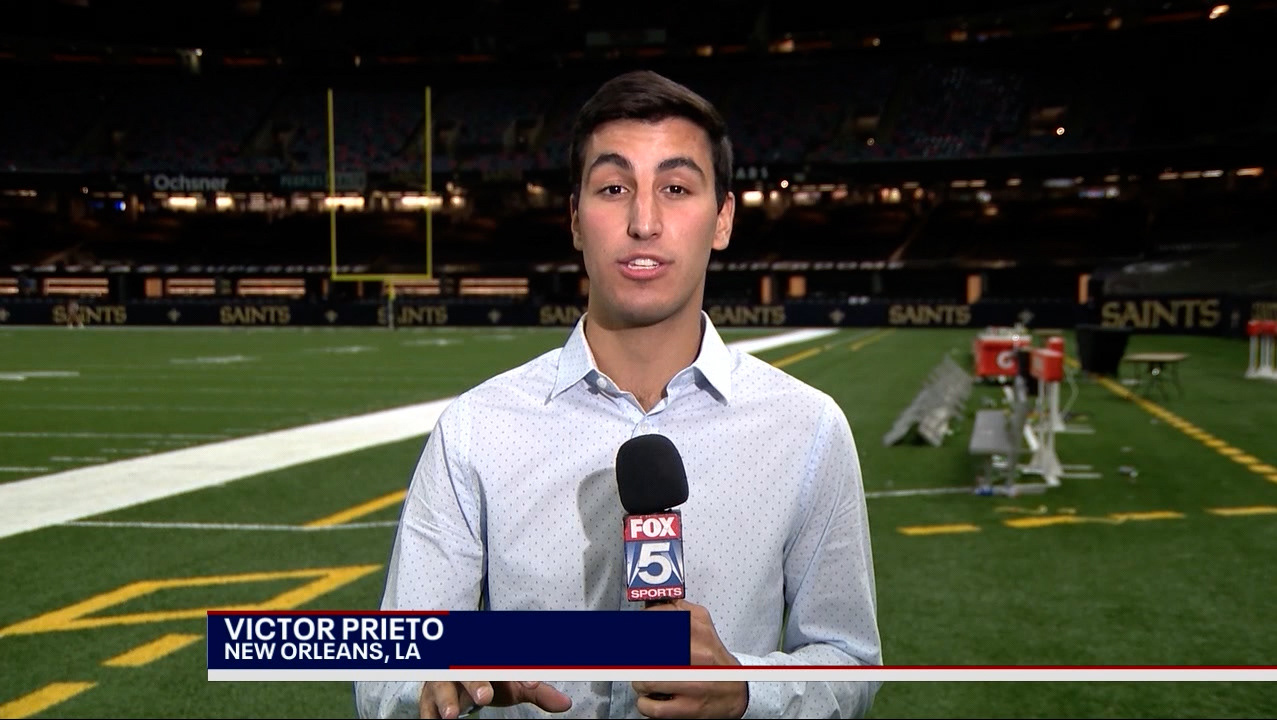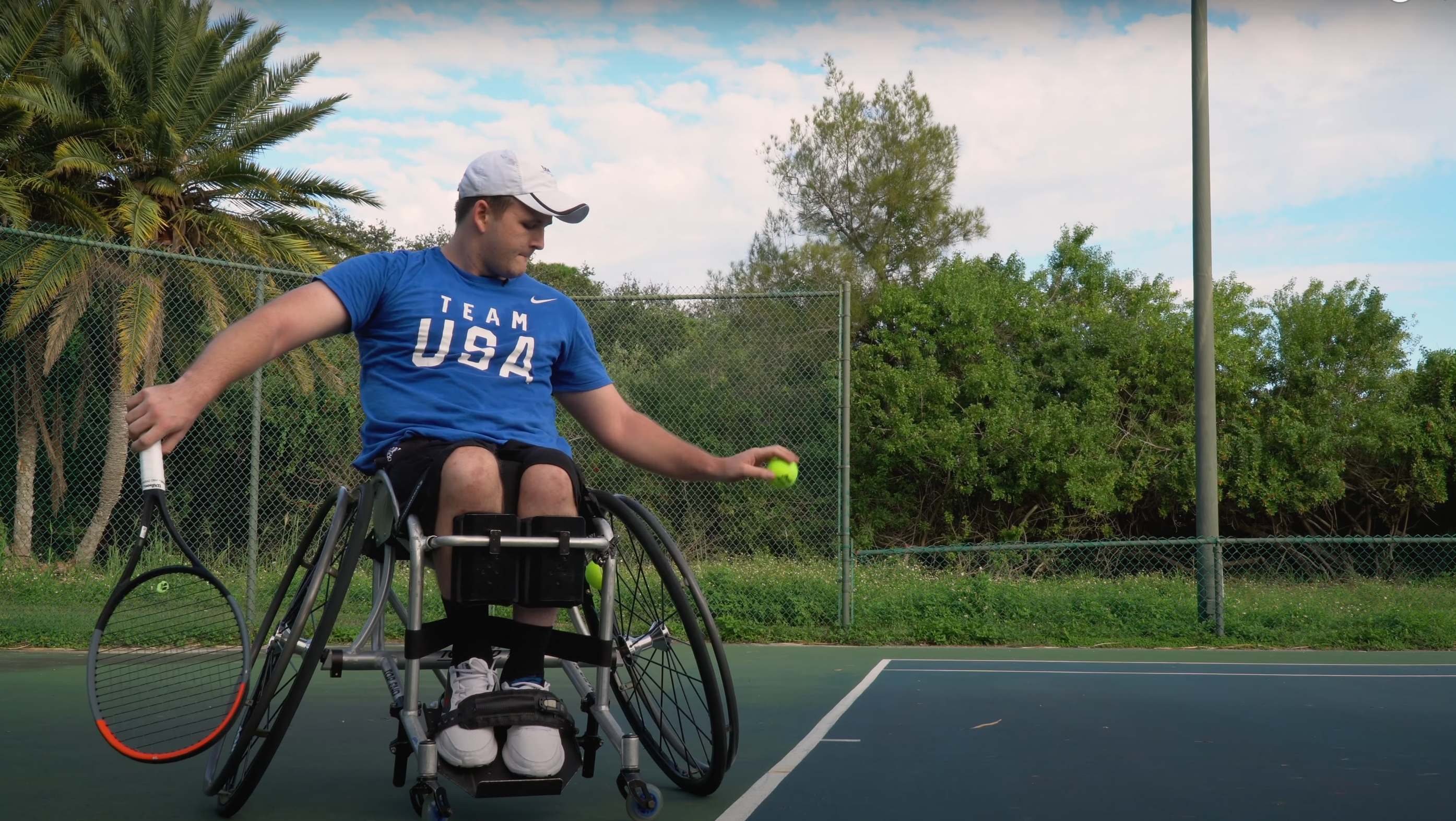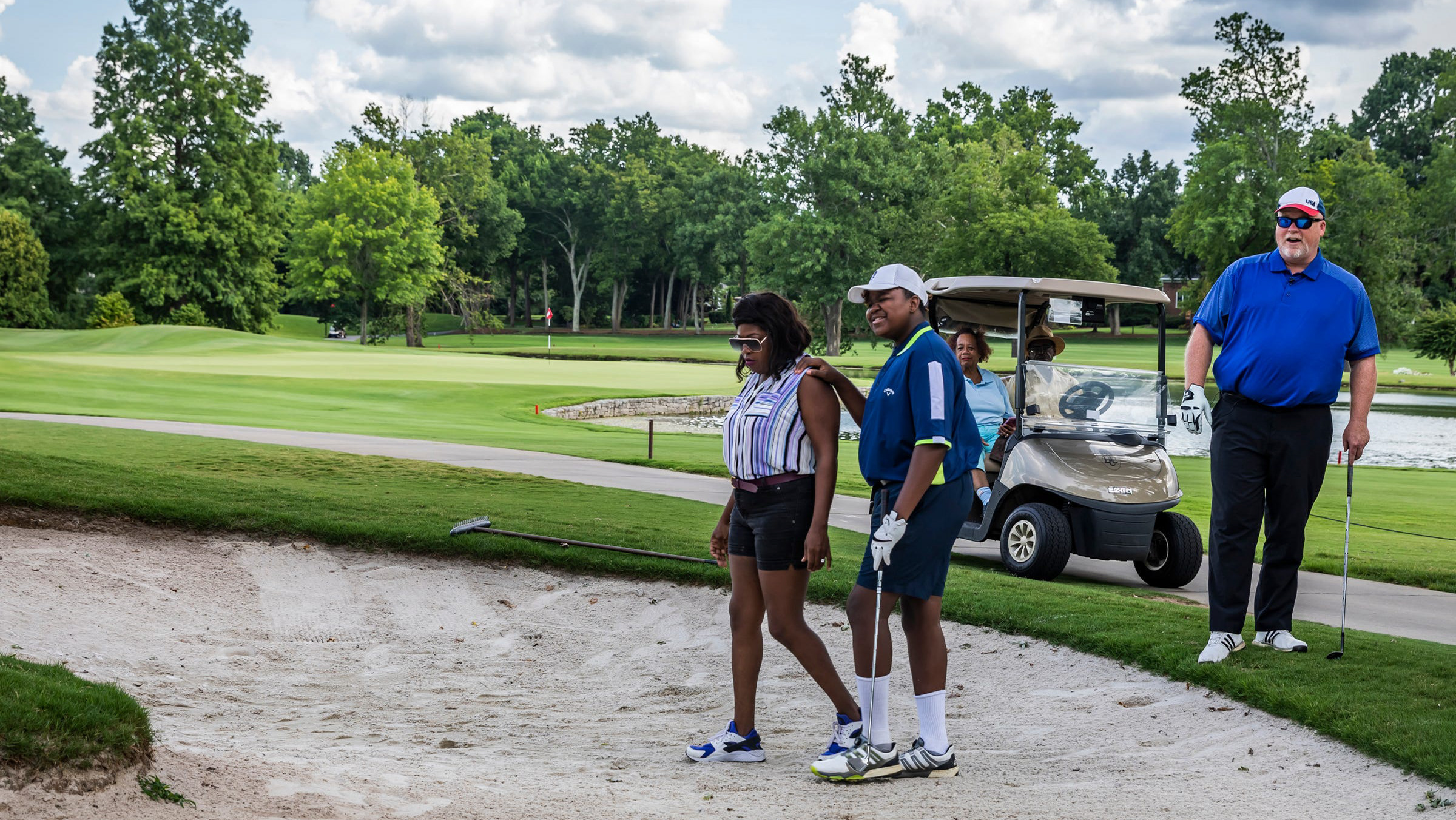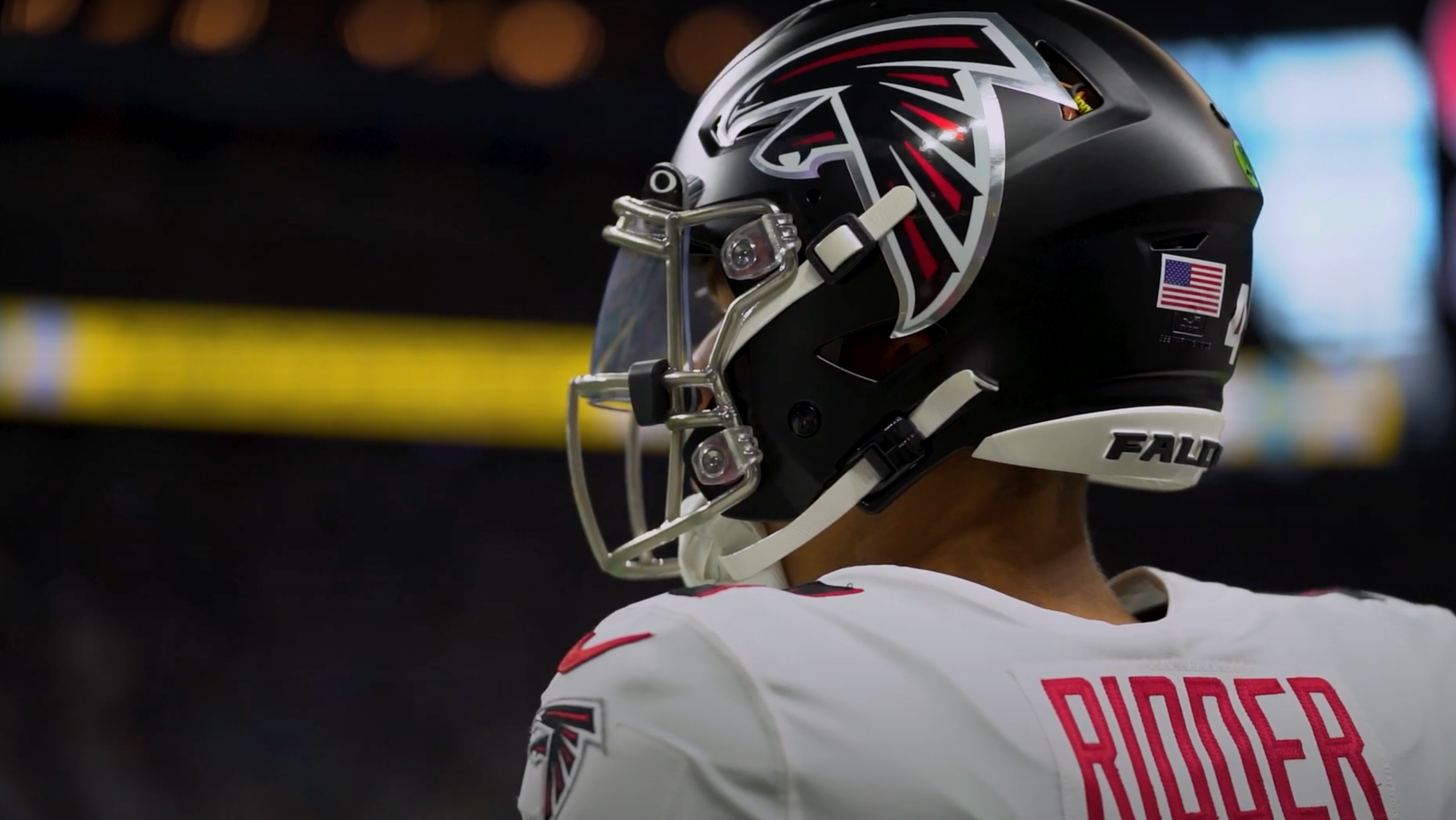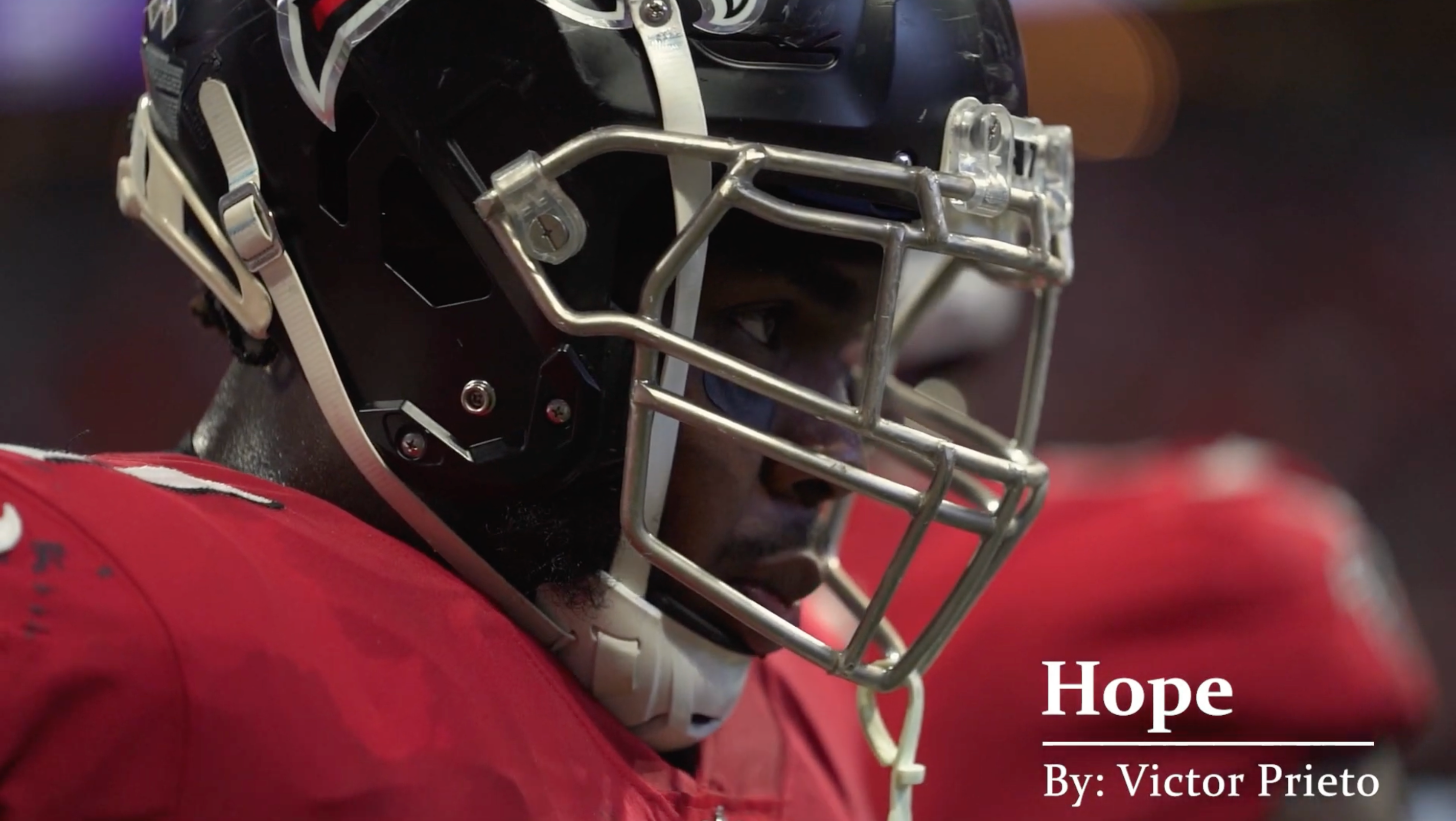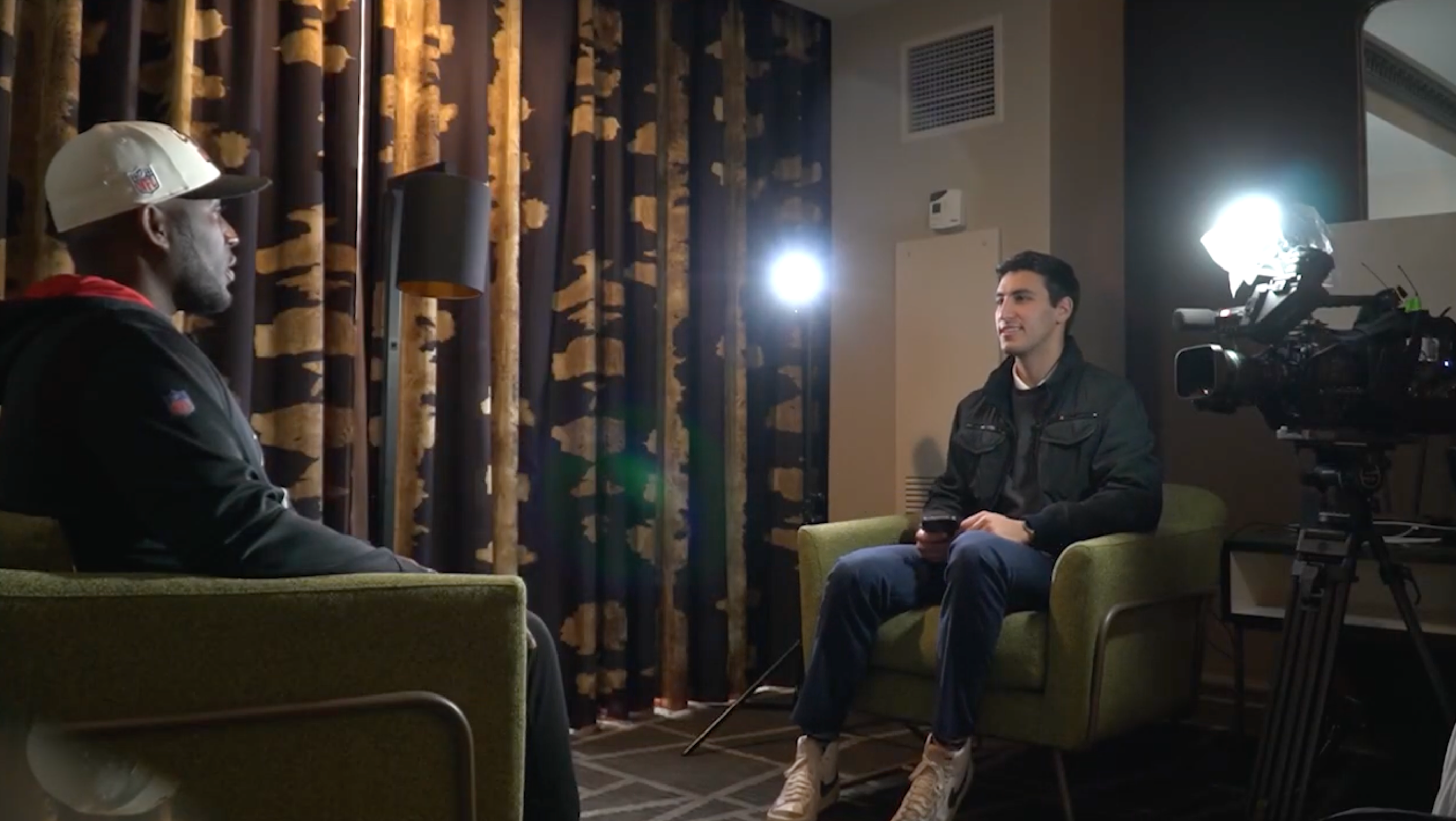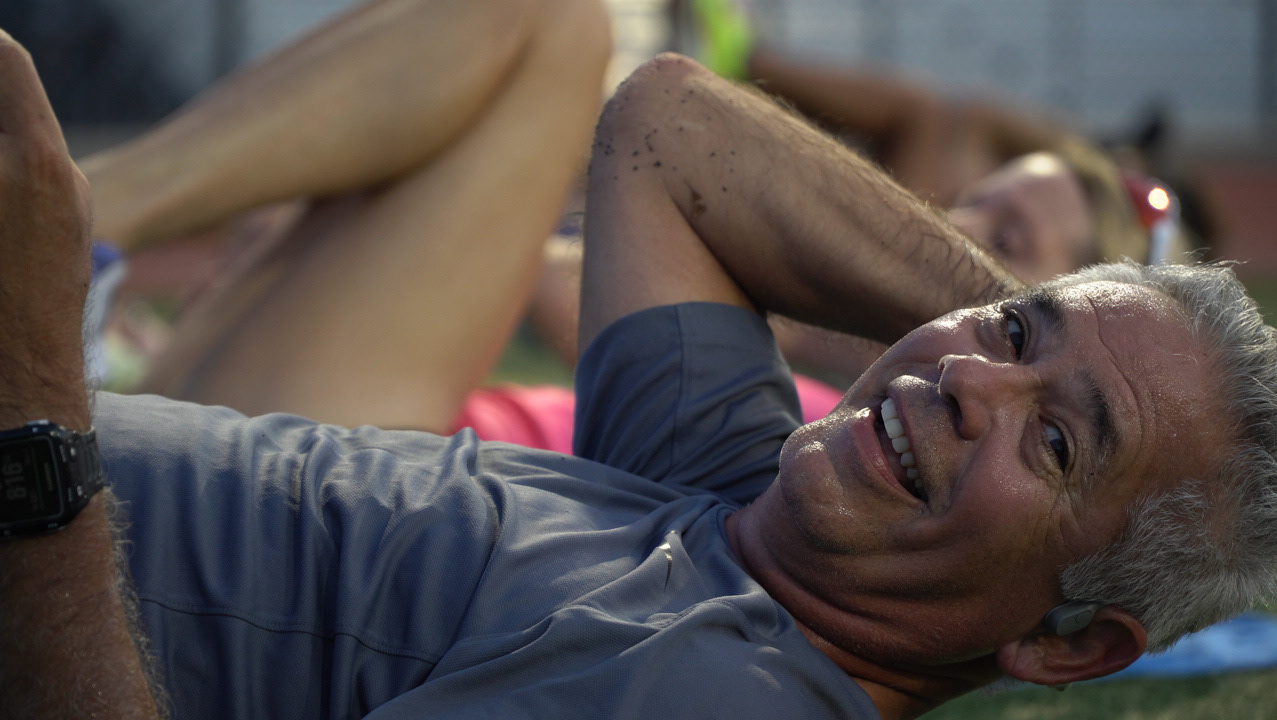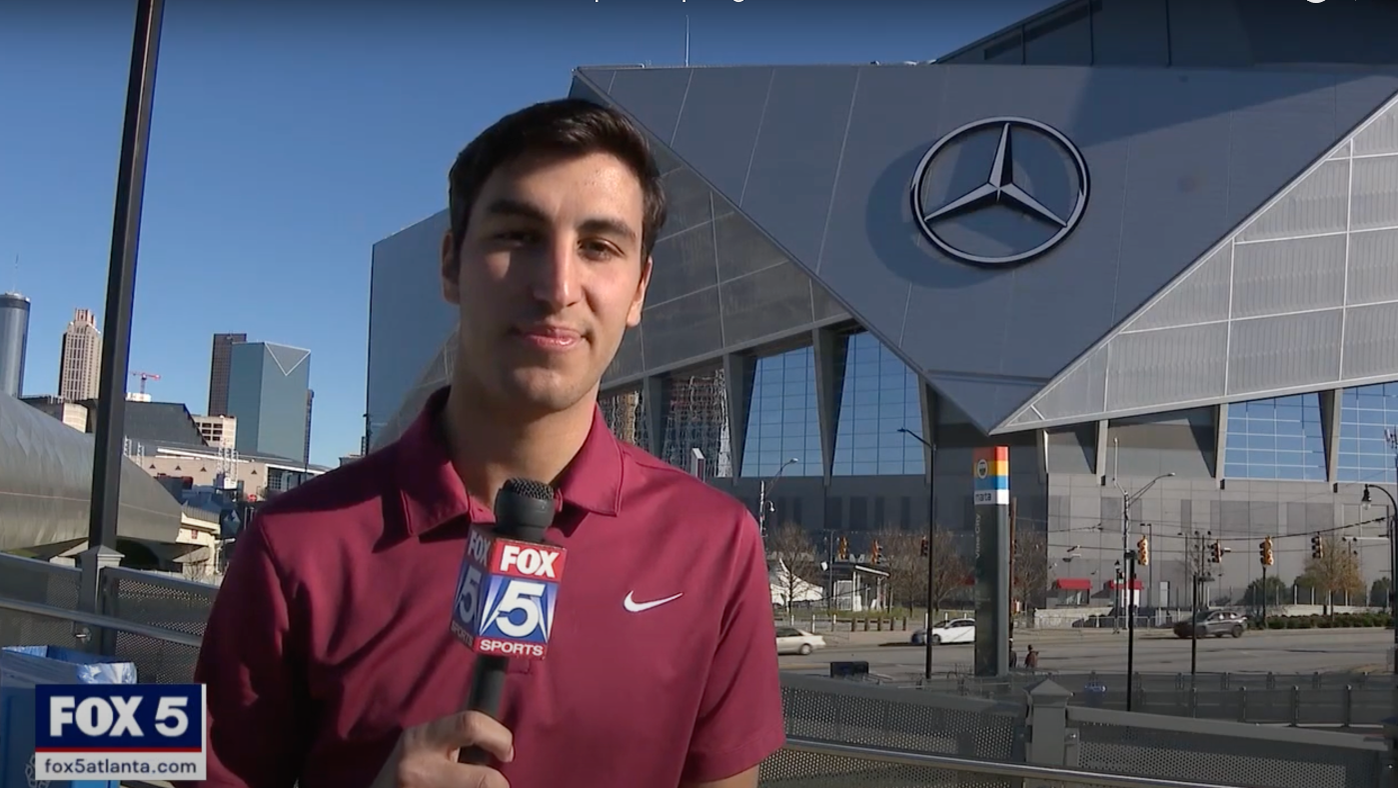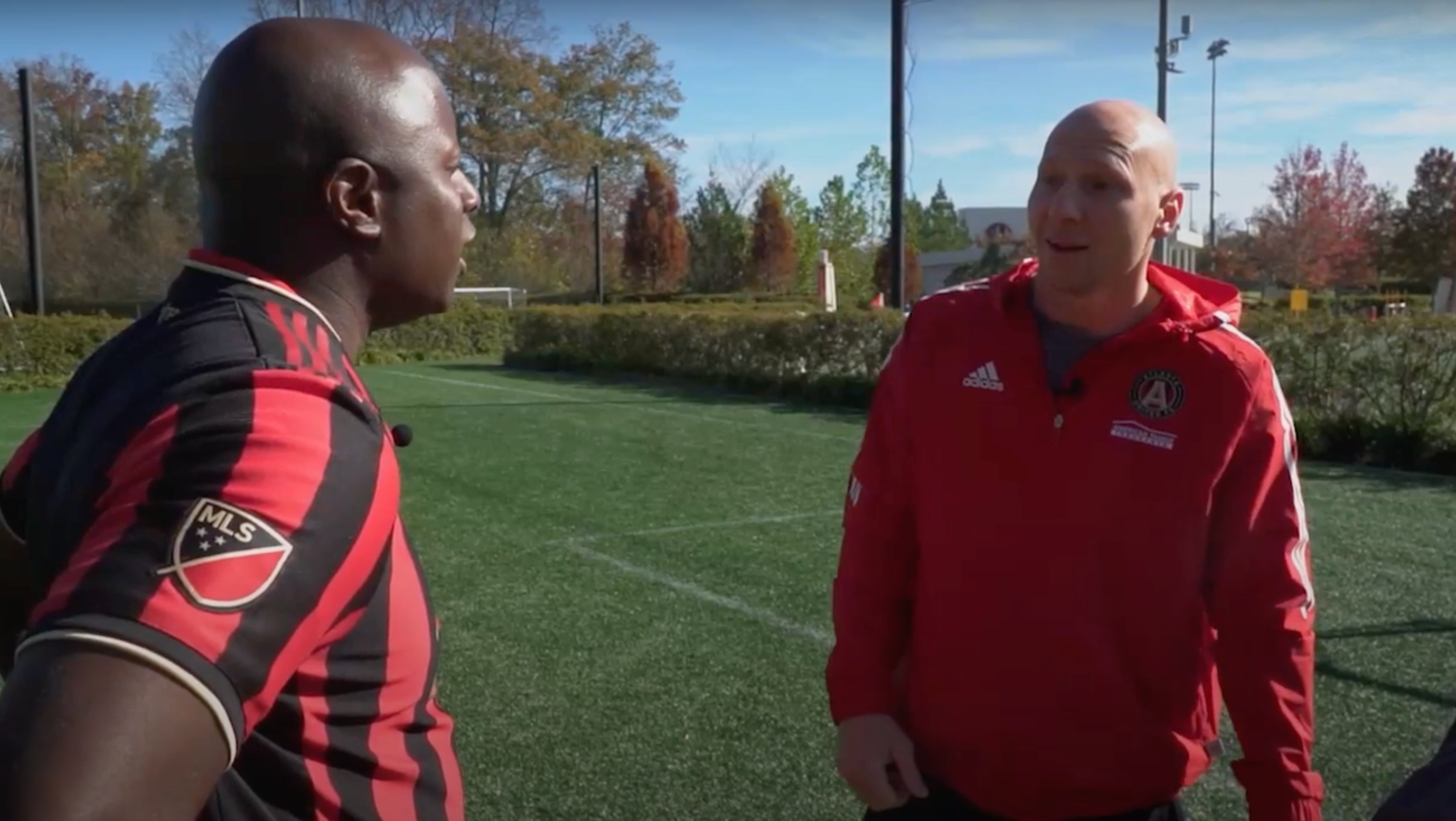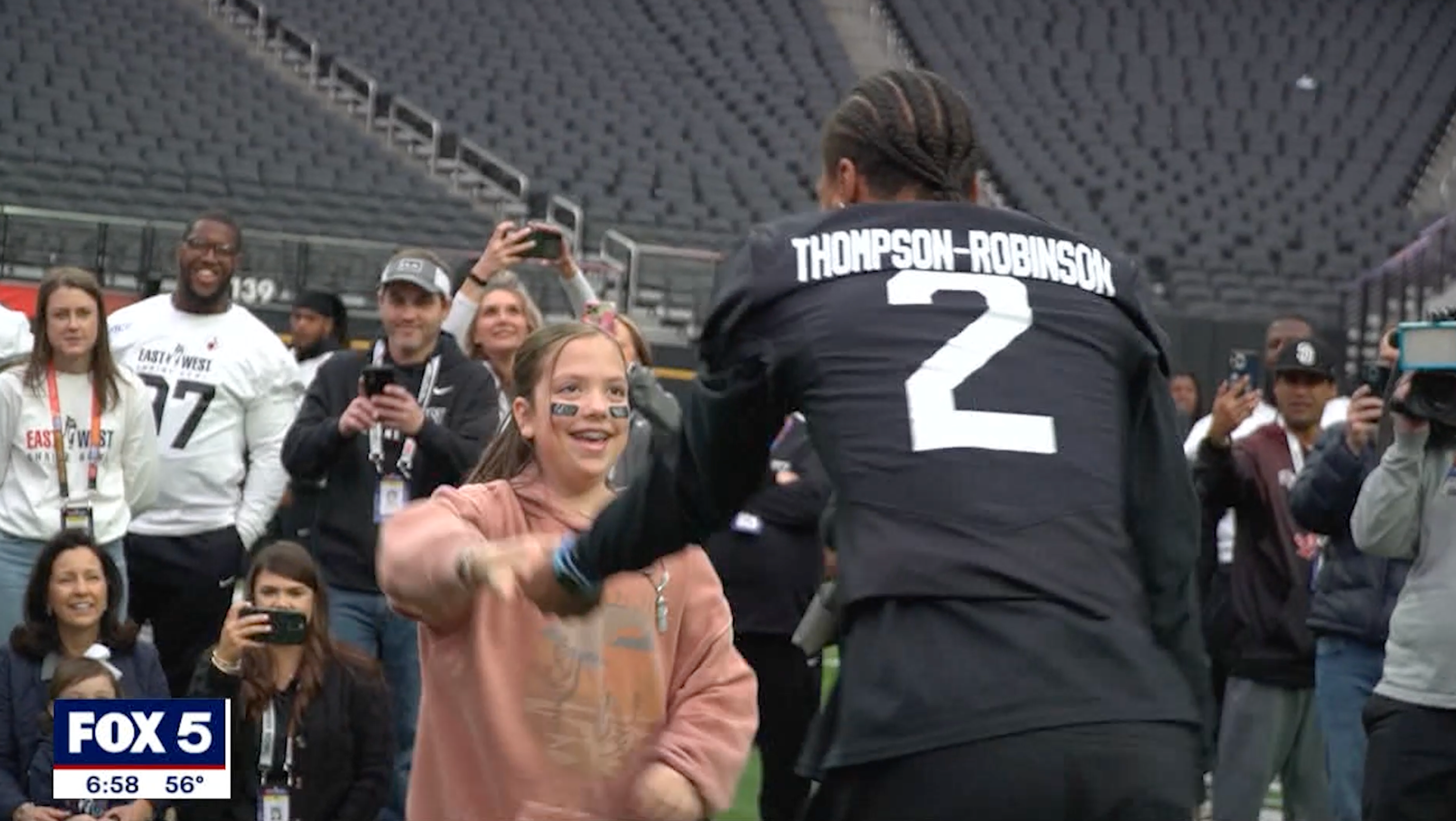With his arms stretched to the heavens, history had been made. Sixteen hours, 46 minutes and nine seconds later, Chris Nikic had done what many considered impossible. Enduring one of the hardest physical and mental challenges a human could experience, Nikic completed a 2.4-mile swim, a 112-mile bike ride and a full 26.2-mile marathon in under 17 hours. This accomplishment was the first-time a person with Down syndrome ever achieved the historic feat.
Tailed by his guide and coach, Dan Grieb, Nikic lifted his arms to confetti shooters with a socially-distanced crowd cheering him on. At the finish line waiting for him were two instrumental characters who stood with Chris every step of the way. His sister, Jackie, and father, Nik, patiently waited in excitement what they received after every one of Chris’s races: a hug. But this hug was incomparable to the thousands of others he’s given. This hug, on this night, in Panama City, Florida, was from an Ironman.
***
Nik Nikic knew something was different about Chris when he was first born in 1999. Though he didn’t know then, he would soon come to know why. Chris Nikic was diagnosed with Down syndrome, a disability which causes developmental delays and intellectual disabilities. Chris couldn’t walk until he was four years old. It took him more than a year to learn to ride a bike. But his father knew Chris was capable of so much more than what other people thought.
“When Chris was first born, it was like, you know, we were hit with a ton of bricks. We just didn't know, we didn't understand, and so we thought all our hopes and dreams had been crushed,” Nik Nikic said. “A lot of professionals told us things that we just didn't understand."
Nikic admitted for the beginning years of Chris’s life they listened to these “experts” and treated Chris differently. They didn’t know any better because they believed what they were told. After having Chris compete in sports through the Special Olympics, though, Nik had an idea.
If Chris was to be independent and live a full life, he needed a list of goals to accomplish. They sat down in his room, and on his wall wrote down a set of goals that Chris strives to accomplish everyday: to have a car, own a house, start his own company, and marry a “smokin’ hot blonde from Minnesota” for a wife. This simple act was the first step towards Chris accomplishing something both Nik and his wife, Patti, never imagined possible.
***
Chris’s first love in sports came on the links. He picked up the sport of golf through the Special Olympics and played with his dad on the weekends. He would occasionally shoot hoops in his free time, too. Though Chris found enjoyment in basketball and golf, Nik still felt like he needed to be more active. He had heard about the Special Olympics’ triathlon races and asked Chris what he thought about running.
“We started about three years ago with just the idea to do something to get them in shape,” Nikic said. “He had just come off of four major ear surgeries, about two years of being very sedentary, got really out of shape, gained a lot of weight and was headed in the wrong direction at that point, and doing a triathlon was just a way to get involved with a group of people have some fun and get in shape.”
They struggled early on in the training, taking months, and in some cases a year, to learn simple and essential actions for a triathlon like swimming and biking. Though the struggle lessened as Chris continued working, the summer of October 2019 changed that. Chris took a trip to Lucky’s Lake in Orlando, Florida -- a one-kilometer open water swim free to the public to partake in. The fad, which was started by house owner Lucky Meisenheimer, has achieved fame status among the triathlete community.
The swim, which essentially is completed in Lucky’s backyard lake, is no easy task. Anyone able to complete the swim is rewarded with an opportunity to etch their name in history and remember the moment by signing his house. When Chris made the trip down to Lucky’s Lake in October with his dad and Dan, he had that opportunity to leave his mark.
“He signed a wall and the wall said, ‘Chris world champ’. That was his perception of what he just accomplished,” Nikic said. “And I looked at that, and I said, ‘I wonder, why not? Why can't he be a world champion in something? And that's when he ignited something in me.”
Nik refers to Lucky’s Lake as the turning point in Chris’s training. Up to that point, Chris had been training for races with the Special Olympics. In his first triathlon race at the state championships for the Special Olympics, Chris finished dead last. They refused to let that stop them from continuing to work hard and race. After months of training and then completing Lucky’s Lake, Nik saw a new opportunity for Chris.
“I asked (Chris), I said, ‘What do you say bud, what do you say we do an Ironman?’ And he says, ‘What's that?’” Nikic said. “I said, ‘Well, it's really easy. Just keep getting 1% better, work hard, and just eat more.’ And he said, ‘Sure, I can do that.’”
Chris accepted the challenge to run in one of the hardest designed races in sports with ease. Though running in an Ironman seems impossible to most people without disabilities, to Chris, Nik and Dan, Down syndrome is just another obstacle that they can and will overcome in their pursuit of history.
“The training has been difficult at times, because there is no manual. We can't ask the other family that has a Down syndrome child, like, ‘How did he react to an open water swim?’” Dan Grieb, Chris’s coach and guide said. “How do you properly, you know, manage him on a 100 mile bike ride? There's no manual for that. There's no system for that. There's no expert to ask.”
In this effort to complete an Ironman, Nik and Dan had to look at different strategies to help Chris in his training. As a result, they adopted the one percent better philosophy, pledging to do just a little more than the day before every day. They found it was most effective to quantify everything Chris does and break it down to its simplest form. In other words, Chris gets just one percent better everyday, and over time that consistent gradual improvement will be exponentially better.
“He started by being able to do a lap in a pool, which was really hard for him at the very beginning, he couldn't do a full lap in a pool,” Nikic said. “But we focus on just getting one percent better, so it's just been a journey of a couple of years, where we started close to zero, and just focused on doing a little bit more each day, one more push up, one more sit up, one more lap in a pool. And now he does 100 miles.”
This philosophy has become Chris’s brand in his pursuit of becoming the first person with Down syndrome to complete an Ironman. On his website, he urged his followers to take the ‘1% Better Challenge,’ where he urges others to get one percent better for 30-days, then pay it forward by helping someone else do the same. This goal of helping others and inspiring them to do better is not atypical for the Nikic family. They know how much of an impact Chris can have and they use it as fuel to continue pushing the limits even further.
“I can be an inspiration to the kids,” Chris said. “When the kids see me they can run to their parents and say they want to be like me."
With every step, Chris continues breaking barriers and creating opportunities for himself and others like him. He’s proven nothing in life can stop someone from achieving their ultimate goals in life. He set out a goal that seemed impossible years ago when he was still struggling to ride a bike alone or could only swim one lap. Now, he sits as the Guinness Book World Record holder as the first person with Down syndrome to race in and complete an Ironman. He has more than 100,000 followers on Instagram. By crossing that finish line with his hands spread wide, Chris created a new standard and opened the world to an endless amount of possibilities for those in the special needs community and beyond.
“This whole journey gives Chris a purpose,” Nik said. “A purpose in life. Something he can do the rest of his life, which is to make a difference for others like him. So that he can spend the rest of his life showing others like him that anything is possible. They can get their dreams and hopes, and they can achieve whatever they want to achieve.”
